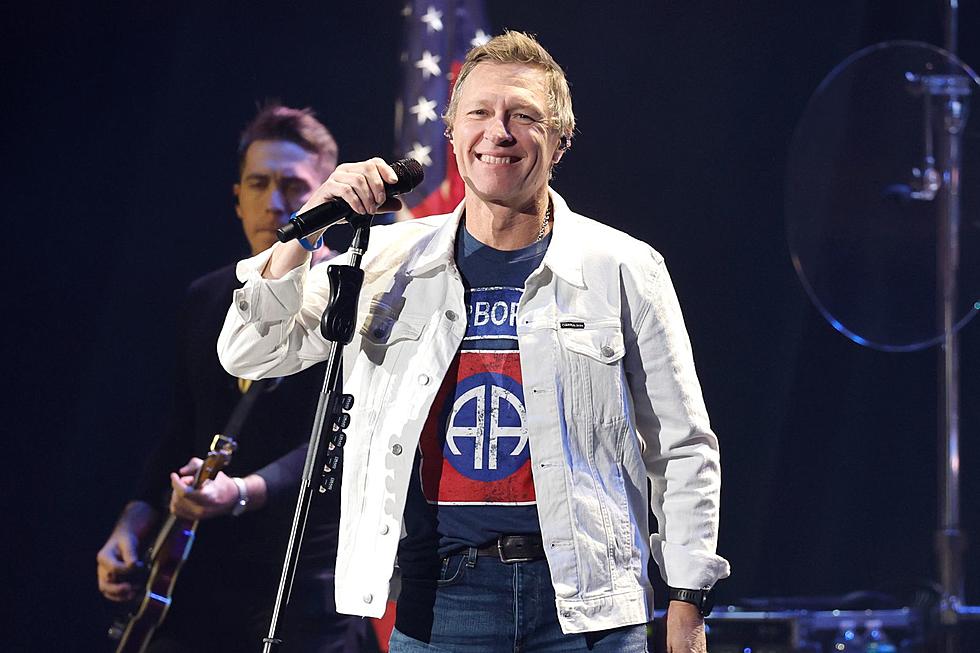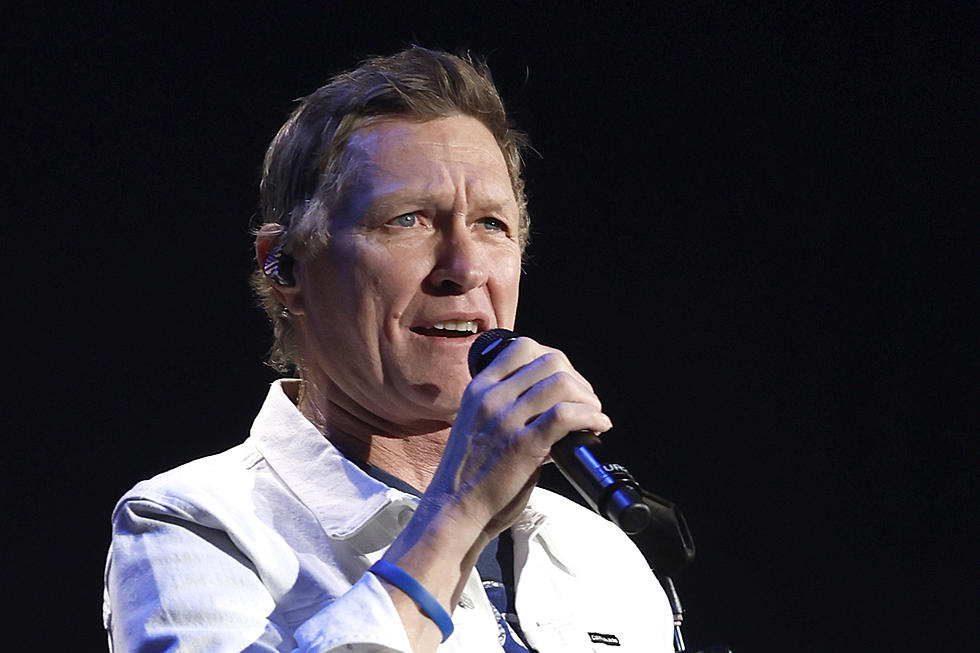Craig Morgan: ‘We Took Our Time’ on New Single, Upcoming Album
Craig Morgan's new single may be the most autobiographical song he has ever released — which is particularly interesting in light of the fact that he didn't write it.
The country star has just released "When I'm Gone," the lead single from his first full-length studio release in three years. Written by Justin Ebach and Steven Dale Jones, the song speaks to Morgan's adventurous side. He worked with Byron Gallimore — whose credits include Tim McGraw, Faith Hill and Sugarland — for the first time on his upcoming album, spending eight months in the studio in an intense effort to break new musical ground. "When I'm Gone" definitely takes the singer in a new direction, pairing a very modern production with banjos to create a sound that is both contemporary and classic.
Morgan was enthusiastic about both the new single and his forthcoming album when Taste of Country caught up with him recently. The former Army serviceman and EMT has been staying busy, as usual, squeezing the sessions for the new project in between tour dates and filming for Craig Morgan: All Access Outdoors, his show on the Outdoor Channel, but he set aside time to focus exclusively on the new material, which he feels is as strong as anything he's ever recorded.
Tell us about "When I'm Gone." How did the song come to you?
It was pitched to me through the head of our label, Gordon Kerr. For me, it felt like it was a song that I had written. I had this immediate attachment to this song. It was one of those that you knew when you heard it that it was gonna be something special.
It's a little bit different for you in that it's contemporary, but it's almost retro at the same time.
That's the idea. When we were working on this album, I was trying to find material that would fit in today, and I knew we could produce that, get that production quality with Byron Gallimore, who has been very successful. It was just a matter of having the right material and singing it well, and I feel like we accomplished all of that.
I wanted to record music that is relevant, impacting and relatable. I wanted the radio stations to be able to play it now, and I wanted them to have a song that, 10 years from now they felt like they could still play. And that's difficult. It's also difficult to transition forward. There's a lot of changes in our industry, so you have to be able to grow and change with them, while still staying true to who you are, and I feel like we accomplished that.
What prompted you to start working with Byron Gallimore?
I felt like I wanted to create a product that was relevant. Not that [longtime producer] Phil [O'Donnell] and I hadn't done that. Phil and I have been very successful in my career. I mean, 16 Top 10 hits. So there's a lot to be said for the success that we had. But I knew that I had to make some changes, and I wasn't sure that Phil and I would be able to do that together. I think the big thing was just taking me out of my comfort zone.
Working with someone I had not worked with before, even though he was hugely successful, it takes you out of your comfort zone, and that's what Byron did. It was ironic that I did it to get out of my comfort zone, but he made me feel extremely comfortable when we were working together. I've produced in the past, and I wasn't sure how he would see my production ideas, and he was overwhelmingly receptive. It was just a wonderful experience, and I look forward to doing it again with him.
I truly felt artistic in the process of this album, and I attribute that to having taken our time.
You spent eight months on this. That's a long time for a project now. What part of the process took so long?
We took our time. There's something about this record. The difference is, I felt something that I, in the past, have made fun of people for saying. [Laughs]. Some of my counterparts, I've made fun of them when they talk about being artistic. You know, we don't paint. We don't draw. We sing, and we write songs. But I truly felt artistic in the process of this album, and I attribute that to having taken our time.
We chose to really write and listen for songs that met the criteria of this album, instead of just listening and saying, "Yup, that's a hit." It had to be more than just a hit. And that took time. And then when we got in the studio, I literally set aside blocks of time to be in the studio, instead of going in, doing a session and then hopping on a pane and flying out to the next gig and flying back and forth. I think my head space was really in the right spot, really clean for this project.
What does Byron Gallimore bring to a project that's different than another producer?
Obviously, hit after hit after hit experience. One thing that he did differently with me — and it's no one's fault that we did it any different in the past except mine; I'm the one who chose to do it the way we did — is our vocals. In the past, I've always used various vocals from our tracking sessions, because I felt like they were great vocals, and I think due partly to the fact that I had limited time to get back in the studio to sing again.
On this project, Byron insisted, just for the heck of it, let's go back in and re-sing. So I went back in and re-sang this stuff, and even though I might not have sung the song two or three passes — I think the most was four passes on the song, for them to get to comp together. I went in and sang, and I wasn't focused on anything but singing. So I feel like I've got some of the best vocals on this stuff that I've ever had, and I will probably forever do it this way.
I had this immediate attachment to this song.
What is your goal for this record?
I just want to touch people, and I want it to motivate people to do good things. This is a very positive record. And of course I want to sell a ton of records; I've got four kids. [Laughs]. You know what, there's a lot of people that work very hard and have invested in me and on my behalf — the record label, management, my band and crew. There's a lot of people that are invested in my career besides myself. So I want to continue to be successful, and grow, and have bigger shows and more fans, and sell more and more records, because there's a lot of people that are dependent on that success. So I want to do well for all of them, as much as myself. I'm as proud of this as anything I've ever recorded.
Craig Morgan + More Stars Who've Served Their Country
Craig Morgan Shares How His Music Literally Saved a Life
More From Taste of Country
![Craig Morgan Sings the National Anthem at Not One, But Two MLB Games [Watch]](http://townsquare.media/site/204/files/2024/04/attachment-Craig-Morgan.jpg?w=980&q=75)



![Craig Morgan Speaks His Mind on ‘Enlisted’ [Interview]](http://townsquare.media/site/204/files/2023/10/attachment-Craig-morgan-Nate-Griffin.jpg?w=980&q=75)



![Craig Morgan Enlists in the U.S. Army Reserve Onstage at the Grand Ole Opry [Watch]](http://townsquare.media/site/204/files/2023/07/attachment-CraigMorgan.jpg?w=980&q=75)
